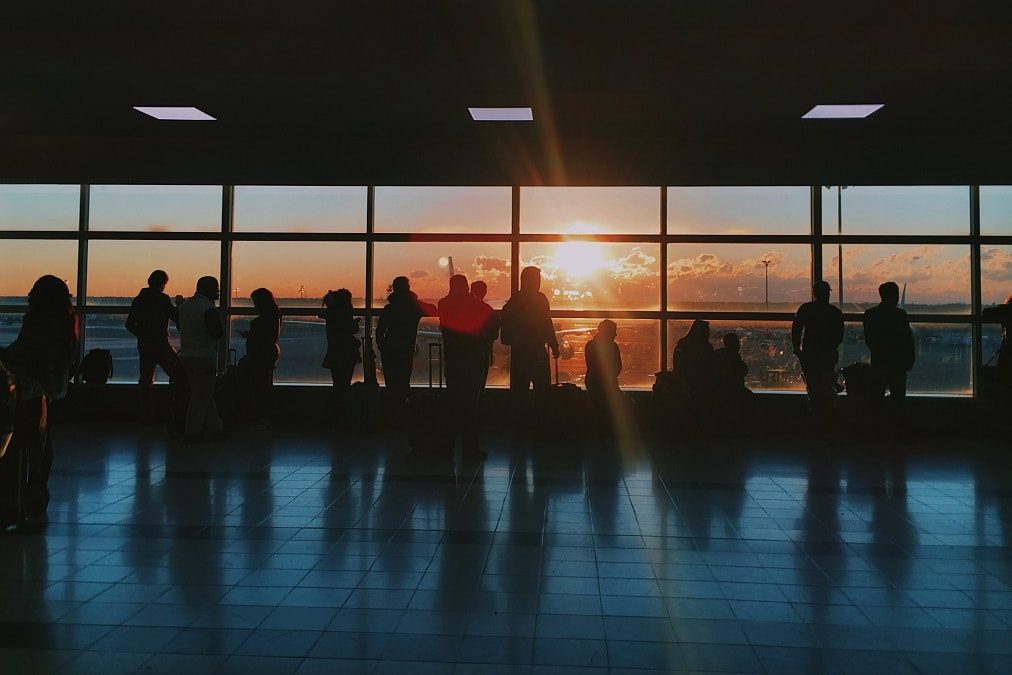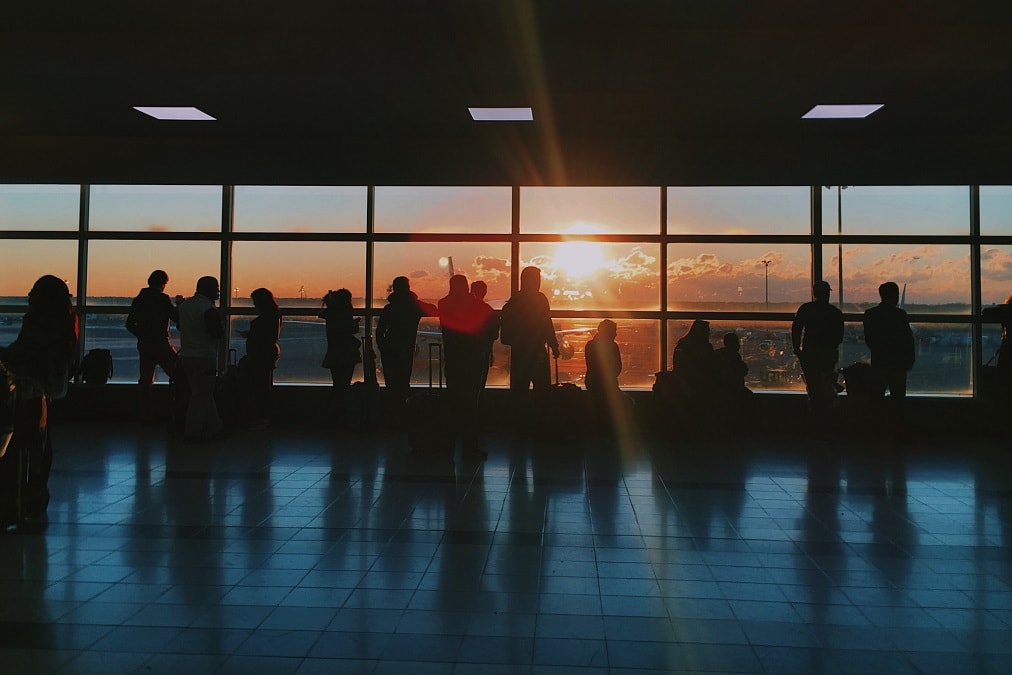Thomas Cook has collapsed after last-minute negotiations aimed at saving the 178-year-old holiday firm failed.
The UK Civil Aviation Authority (CAA) said the tour operator had “ceased trading with immediate effect”.
It has also triggered the biggest ever peacetime repatriation, aimed at bringing more than 150,000 British holidaymakers home.
Peter Fankhauser, Thomas Cook’s chief executive, said the firm’s collapse was a “matter of profound regret”.
Commenting as the company entered compulsory liquidation, Mr Fankhauser also apologised to the firm’s “millions of customers, and thousands of employees”.
The tour operator’s failure puts 22,000 jobs at risk worldwide, including 9,000 in the UK.
BBC transport correspondent Tom Burridge said 16,000 holidaymakers were booked to come back on Monday. Authorities hope to get at least 14,000 of them home on chartered flights.
The government has chartered 45 jets to bring customers home and they will fly 64 routes on Monday, in an undertaking dubbed Operation Matterhorn. The size of the fleet will make it temporarily the UK’s fifth-largest airline.
Operators including easyJet and Virgin have supplied some aircraft, with jets coming from as far afield as Malaysia.
Customers can visit the CAA’s special Thomas Cook website. Those scheduled to return to the UK within the next 48 hours or who are having problems with their accommodation or need special assistance can ring 0300 303 2800 in the UK or +44 1753 330 330 from abroad.
The BBC understands the government was asked for a bailout of £250m, which was denied. Transport Secretary Grant Shapps defended the move on the Today programme.
“I fear it would have kept them afloat for a very short period of time and then we would have been back in the position of needing to repatriate people in any case,” he said.
The company’s large debts and High Street-focused business made it a poor candidate for survival, he said.
Shadow chancellor John McDonnell told the BBC the government should have bailed out Thomas Cook, “if only to stabilise the situation while a real plan for the future of the company could be addressed”.
Prime Minister Boris Johnson pledged to help stranded holidaymakers, but also questioned whether company directors were properly motivated to “sort such matters out”.
What is the government doing?
The BBC understands the government was asked for a bailout of £250m, which was denied. Transport Secretary Grant Shapps defended the move on the Today programme.
“I fear it would have kept them afloat for a very short period of time and then we would have been back in the position of needing to repatriate people in any case,” he said.
The company’s large debts and High Street-focused business made it a poor candidate for survival, he said.
Shadow chancellor John McDonnell told the BBC the government should have bailed out Thomas Cook, “if only to stabilise the situation while a real plan for the future of the company could be addressed”.
Prime Minister Boris Johnson pledged to help stranded holidaymakers, but also questioned whether company directors were properly motivated to “sort such matters out”.
How will holidaymakers get home?
While an estimated 150,000 Britons are affected by Thomas Cook’s collapse, the company has about 600,000 customers abroad.
In Germany, one of Thomas Cook’s main markets, insurance companies will help organise the response to its collapse.
UK customers will be brought home “as close as possible” to their booked return date, the Department for Transport (DfT) has said.
Customers will be on special free flights or booked on to another scheduled airline at no extra cost, with details of each flight to be posted on a dedicated website as soon as they are available.
The DfT added that a “small number” of passengers might need to book their own flight home and reclaim the costs.
Customers have been urged not to cut short their holiday or go to the airport without checking the website for more information about their return journey.
The CAA is also contacting hotels accommodating Thomas Cook customers, who have booked as part of a package, to tell them that the cost of their accommodation will be covered by the government, through the Air Travel Trust Fund and Air Travel Organiser’s Licence scheme (Atol).
Tim Johnson, policy director of the CAA, told BBC News that customers whose future holidays had been cancelled would be informed of how they can claim a refund on the website.
Business Secretary Andrea Leadsom has said she will write to the Insolvency Service urging them to “fast-track” their investigation into the circumstances surrounding Thomas Cook’s going into liquidation.
The DfT said the investigation will also consider the conduct of the directors.
What went wrong?
Thomas Cook had secured a £900m rescue deal led by its largest shareholder Chinese firm Fosun in August, but a recent demand from its banks to raise a further £200m in contingency funding had put the deal in doubt.
Fosun said in a statement: “We extend our deepest sympathy to all those affected by this outcome.”
The holiday company spent all of Sunday in talks with lenders trying to secure the additional funding and salvage the deal, but to no avail.
Thomas Cook has blamed a series of issues for its problems, including political unrest in holiday destinations such as Turkey, last summer’s prolonged heatwave and customers delaying booking holidays because of Brexit.
Speaking to BBC News from Manchester airport, travel expert Simon Calder said Thomas Cook “wasn’t ready for the 21st Century”.
“Now everybody can pretend they are a travel agent. They’ve got access to all the airline seats, hotel beds, car rentals in the world and they can put things together themselves.
Mr Calder, travel editor at The Independent, added that planes at the airport began to be impounded shortly after 00:00 BST.
While the company was closing shops to try and cut costs, closing 21 in March, it still had more than 500 outlets, bringing large costs compared to online competitors.
In another sign of its slow progress in mending its finances, it only stopped dividend payments to investors in November.
What are your rights?
If you are on a package holiday, you are covered by the Atol scheme.
The scheme will pay for your accommodation abroad, although you may have to move to a different hotel or apartment.
Atol will also pay to have you brought home if the airline is no longer operating.
If you have a holiday booked in the future, you will also be refunded by the scheme.
If you have booked a flight-only deal, you will need to apply to your travel insurance company or credit card and debit card provider to seek a refund.
When Monarch Airlines collapsed in 2017, the government organised to bring home all the stranded passengers, whether they were covered by Atol or not.





